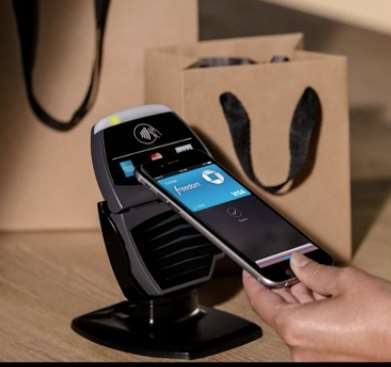Three of Australia’s big four banks – Westpac, NAB and CBA – want to break Apple Pay’s mobile wallet monopoly on the iPhone, negotiating a way to bring their own mobile wallet apps to iOS users.
The three majors joined Bendigo and Adelaide Bank today in jointly applying to the Australian Competition and Consumer Commission (ACCC) for permission to band together as a unified front in negotiations with Apple.
Apple has struggled to gain a strong foothold for its Apple Pay services in Australia, mostly due to its proposed fees. Only ANZ and American Express have signed on.
Most banks instead support rival ecosystems such as Android Pay or have created their own mobile wallet services, which can also be used on Android devices.
However, the banks are unable to offer any of their own mobile wallet services to iPhone users, and have all but given up on being able to negotiate that access individually.
“Apple’s refusal to provide third-party apps with any access to the NFC functionality of its devices sets it apart from other hardware manufacturers, operating system providers and third party wallet Providers such as Google, Samsung and Microsoft,” the four banks said.
“Mobile payment apps other than Apple Pay are [also] not available on Apple devices in [other] countries, even though many participating banks had already developed their own mobile payment apps for other platforms and hoped to make them available on the iPhone.”
Left to individual negotiation, the banks believed they faced a take-it-or-leave-it scenario of either “accepting Apple Pay on Apple’s terms” or giving up on payment services to iPhone users.
Subject to ACCC approval, they plan to form a negotiating syndicate for three years to negotiate access to the NFC chip on iPhones for their own mobile wallets.
While the banks said that all third-party mobile wallet operators came into negotiations with “significant bargaining power”, Apple’s closed ecosystem gave it a strong upper hand at the negotiating table.
“Google has significant bargaining power in negotiations relating to Android Pay due to its control of a key operating system, and Samsung has significant bargaining power in negotiations relating to Samsung Pay due to its control of key mobile hardware,” the banks said.
“However, Apple has particularly significant bargaining power in negotiations relating to Apple Pay due to its control of both a key operating system and key mobile hardware.
“This bargaining power and Apple’s negotiating strategies appear to have resulted in Apple Pay being introduced in other countries in circumstances that limit customer choice, security and transparency and that the applicants wish to avoid.
“Collective negotiation will be required in Australia to overcome the disadvantages the applicants will face in individual negotiations (in terms of size, bargaining power and regulatory and information asymmetries), and to achieve the most efficient and optimal outcome that will preserve and increase competition and best practice principles in mobile payment and mobile wallet services.”
One aspect of mobile wallets the banks said they were concerned about was fraud, and specifically who paid for it.
They argued that consumer wallets were designed to be easy to get on-board with and use.
“[This] also makes it easy for those wishing to commit fraud. Second, there is a question as to who pays for the cost of fraud,” the banks said.
Using their own mobile wallet services in conjunction with the iPhone’s NFC hardware afforded the institutions more control over security and risk, they argued.









